EU referendum: More than 1,280 business leaders sign letter
- Published
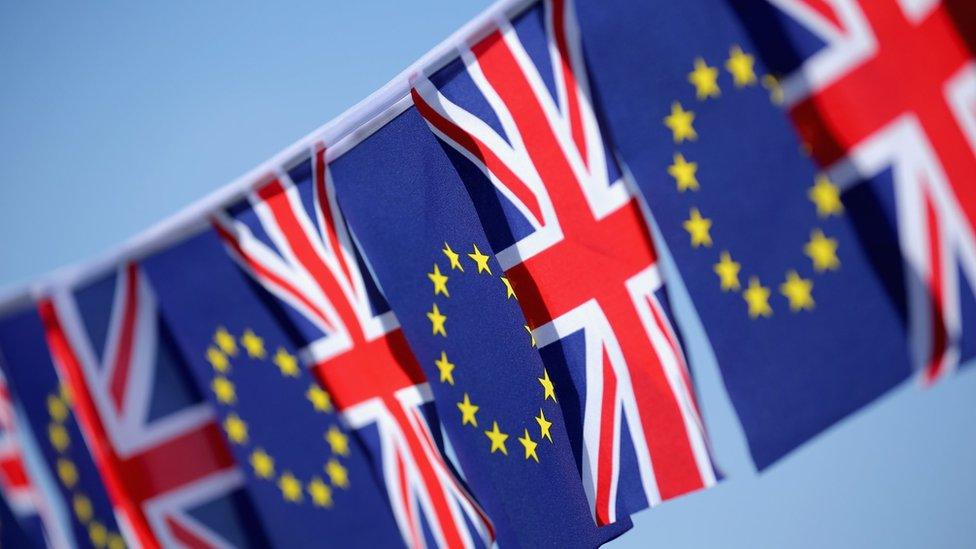
More than 1,280 executives, including directors from 51 FTSE 100 companies, have signed a letter backing the UK's membership of the European Union.
The Remain camp said the letter to the Times showed "unprecedented" support from across business and finance.
However, entrepreneur Sir James Dyson and other businessmen have made the case for a Leave vote.
Wednesday is the last official day of campaigning ahead of the UK's referendum on membership of the EU.
The UK will go to the polls on Thursday to decide whether to remain or leave the 28-country bloc.
Many business leaders who signed the Times letter have already expressed support, but Remain said new names include Sir John Parker from Anglo American, and Barclays' John McFarlane.
Companies on the list employ 1.75 million people, Remain said.
In the joint letter, the bosses say: "We know our firms are stronger in Europe. Our reasons are straightforward: businesses and their employees benefit massively from being able to trade inside the world's largest single market without barriers.
"Even those that want Britain to leave say that, in the short-term, Brexit would lead to economic uncertainty and would put jobs at risk.
"Britain leaving the EU would mean uncertainty for our firms, less trade with Europe and fewer jobs.
"Britain remaining in the EU would mean the opposite - more certainty, more trade and more jobs. EU membership is good for business and good for British jobs. That's why, on 23 June, we back Britain remaining in the EU."
Polls suggest that while big business is broadly in favour of staying in the EU, small firms are evenly split.
But Remain said its list included some 900 small businesses, ranging from a salt maker in Anglesey, dairy farmers in Devon, printers in Antrim and whisky distilleries in the Scottish Highlands.
The group said that such an overwhelming show of support from UK businesses puts to bed the claim of Leave campaigners that "business is split" on the Europe issue.
'Self-harm'
However, major sugar producer Tate & Lyle Sugars (TLS) said a UK exit would benefit its business, while entrepreneur Sir James said it would be an act of "national self-harm" to vote Remain.
TLS senior vice-president Gerald Mason has written to staff saying that the EU has pushed up the firm's costs.
The company, which was sold to American Sugar Holdings in 2010 by FTSE 250 company Tate and Lyle plc, is the largest sugar cane refiner in Europe.
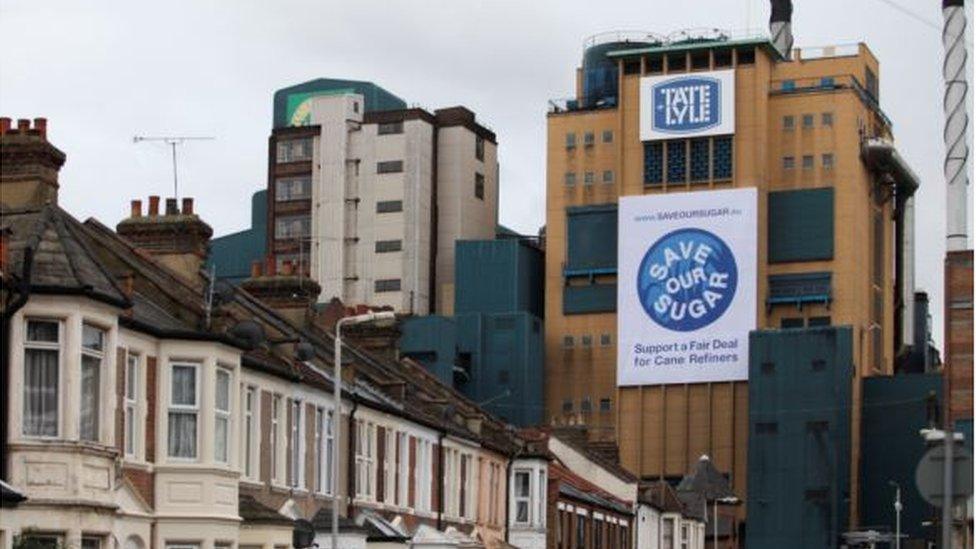
Tate & Lyle Sugars says the EU has ignored its calls for reform
Mr Mason is not telling the 800 staff how to vote, but say jobs would be more secure outside the EU.
"Last year EU restrictions and tariffs pushed our raw material costs up by nearly 40m euros (£31m) alone, turning what should have been a good profit that we would all share into a 25m euros loss," Mr Mason wrote.
Tariffs
"We pay as much as 3.5m euros of import tariffs to the European Union on some of the boats of cane sugar that unload at our refinery, only for the European Union to then send that money to subsidise our beet sugar producing competitors in Europe."
Mr Mason said he has challenged EU officials about reforms, but was rebuffed because there are more beet producers than cane refiners in Europe.
His frustration at being unable to influence Brussels was echoed on Wednesday by Sir James.
In a letter to the Times, the entrepreneur says: "I have been manufacturing and exporting globally for 46 years and have 'sat at the table' dealing with European bodies for at least 25 of those.
'Mythical powers'
"I can confirm that we have no influence whatsoever in the shaping of Europe's protectionist laws and regulations. Believe me, we've tried," he said.
Sir James, who made his name producing bag-less vacuum cleaners, says the argument that Britain would be more prosperous outside the EU was overwhelming.
He writes: "There is an entirely misplaced belief in the mythical powers of the single market and its influence and importance to the UK economy.
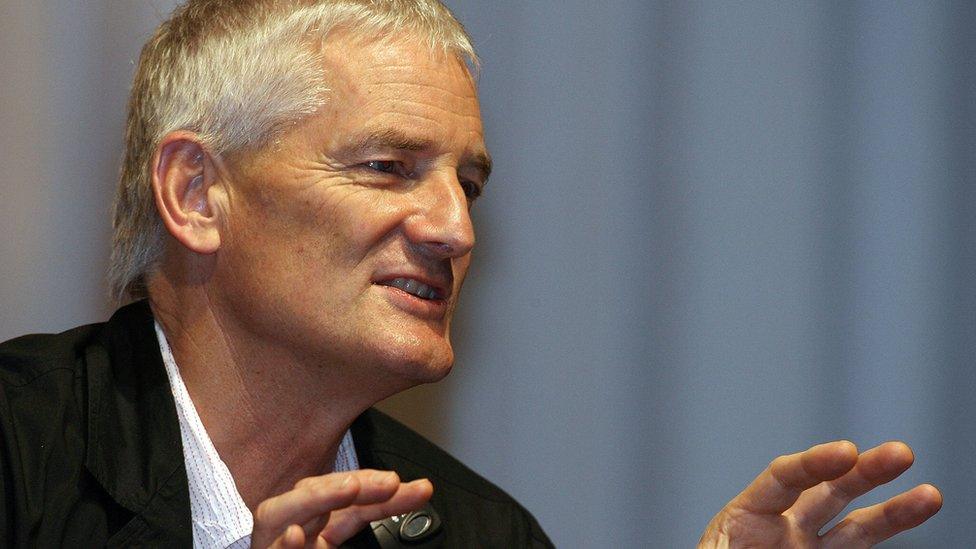
Sir James has previously voiced his support for the Leave campaign
"It is simply untrue that Europe is the world's largest market. It represents only 16% of global trade - and its share is contracting according to the IMF.
"It remains a collection of smaller markets each with its own languages (Belgium has two), laws and cultures, with different plugs, boxes, and advertising."
Britain's focus should be more on the rest of world, he adds, saying "we have nothing to fear by leaving".
- Published22 June 2016
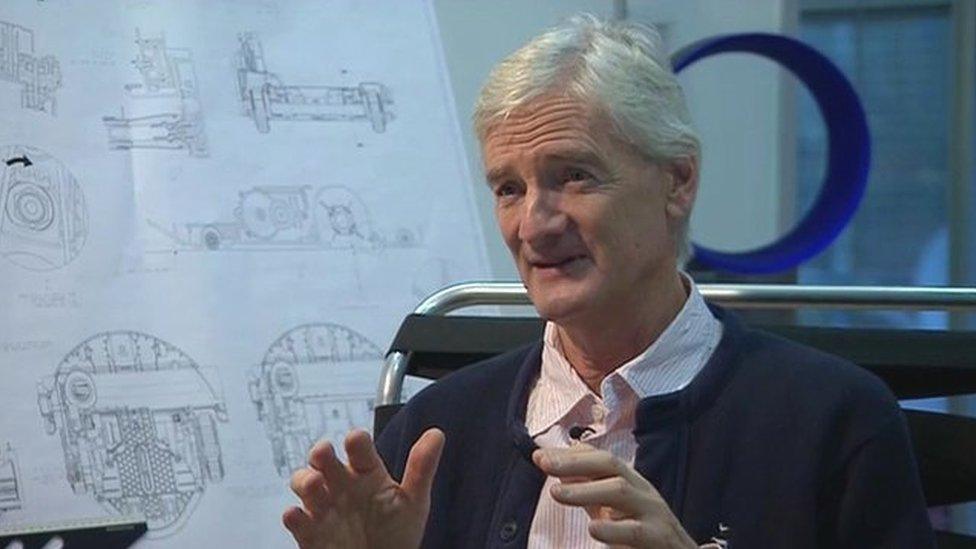
- Published22 June 2016
- Published22 June 2016
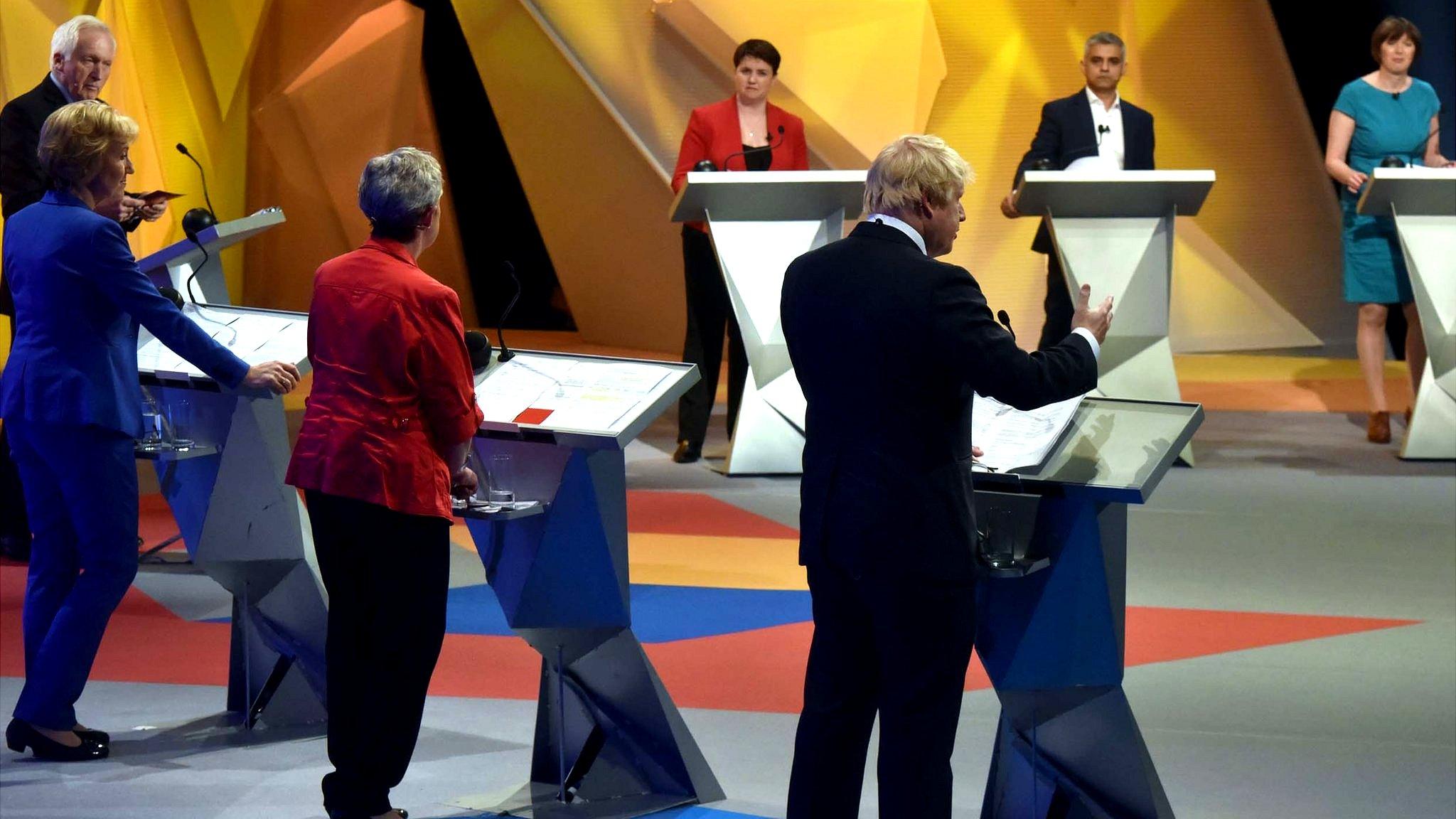
- Published20 June 2016